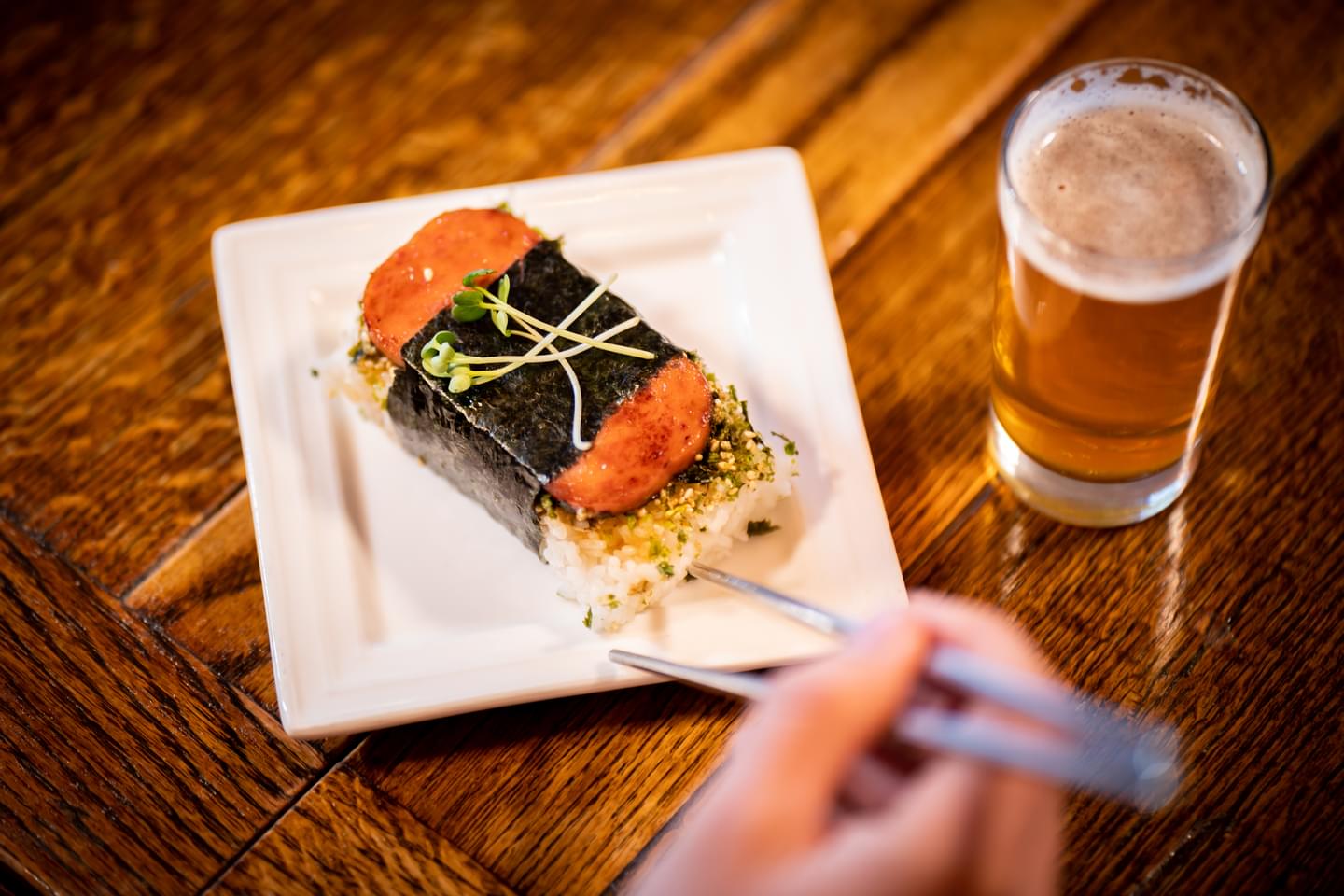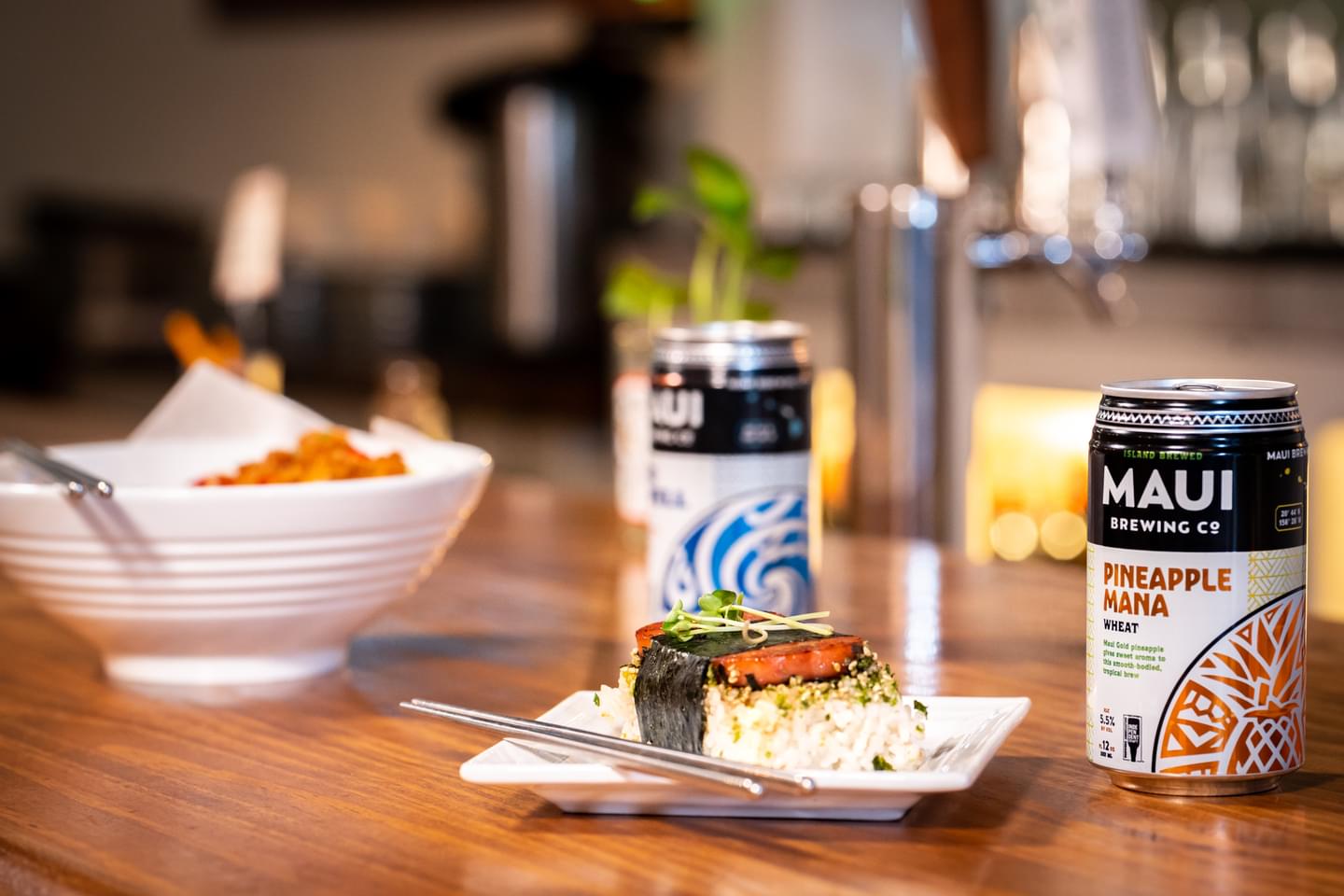Momona Noodle + Bao in Downtown Chico is not your average ramen house.
For the uninitiated, ramen is more than just the dried, squiggly noodles that come in a styrofoam cup with a seasoning packet. If you go to Japan, you’ll find over 10,000 small ramen houses devoted to serving up hot Chinese-style wheat noodles served in a meat or fish-based broth, and topped with a variety of items such as sliced pork, dried seaweed, and green onions. The seemingly simple dish belies a complexity of flavors. It’s even a national dish in Japan.
The owners of Momona — Sarah Schlobohm, Mahina Gannet, and Michael Lee — wanted to bring that quintessentially Japanese dish to Chico, but with a Hawaiian and Taiwan fusion-inspired, West Coast spin.
After deciding to open a restaurant together, Schlobohm, Gannet, and Lee realized that when traveling, they always searched for the same things to eat: noodles and bao, which they couldn’t get in Chico at the time. So they set out to be the ones who brought ramen to the city.

Multicultural Influences
At first glance, it seems strange to have three non-Japanese people open and run a restaurant that is so heavily influenced by its cuisine and culture. Yet, talking with Schlobohm, you can feel the reverence she and her partners have for the food they make.
“Everything we do is influenced by traditional ramen, but we wanted to take something we loved and do it in a way that brought it home, so to speak,” said Schlobohm, who is also the current general manager. “We wanted people who love traditional ramen to love it, but we also wanted it to be approachable to someone who has never had ramen, and everyone in between”
With Hawaiian and Taiwanese food already influenced by Japanese cuisine, the blending of the three creates food that pays homage to the distinct yet connected cultures. Gannet, who is Hawaiian, brought her knowledge and experience of that food to the kitchen as she described traditional dishes to Schlobohm, the former head chef, who worked to perfect them. Schlobohm, Gannet, and Lee have all traveled to Hawaii and Japan together, read about the culture, ate the food, “learned and learned and learned” all they could about those cultures and their food as they developed Momona.
“We all value food and the experience you get when you eat together. There is no better feeling than leaving a comfortable space feeling ‘fat and happy’ after an evening with your friends,” said Schlobohm. So the trio built that ethos of feeling “fat and happy” into the restaurant; in Hawaiian, ‘momona’ literally means “satiated, well-fed, satisfied, fat, fertile.”

“Pau Hana”
“We use the term ‘Pau Hana’ to represent our happy hour,” explained Schlobohm, “but the entire concept of Momona itself is really pau hana: Somewhere you can go when your day is done to relax and enjoy yourself with friends.”
Honor with Authenticity
These multi-cultural influences make Momona different from a traditional ramen house, and that’s ok with its owners. “We’re trying to be the real deal without claiming to be authentic,” said Schlobohm, “We just try to be honest who we are.”
And in the end, Momona is a restaurant run by people who want to honor the cultures that influence the food and make sure people leave with full bellies and happy hearts.
“We really, truly, want [diners] to feel ‘Momona,’” said Schlobohm. “[When they leave], I hope they will remember a meal where they loved the food, felt taken care of, and felt like they could relax in a cool but casual atmosphere. We want them to feel that are all friends and family here in Chico and a good meal is never far away.”
